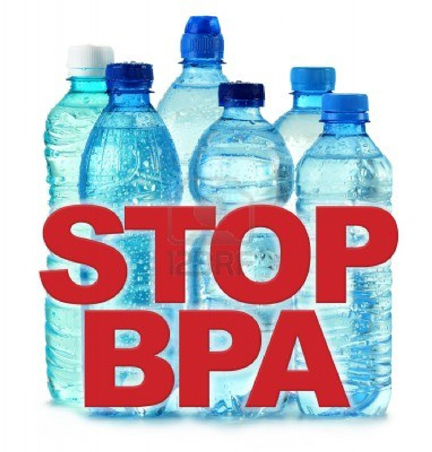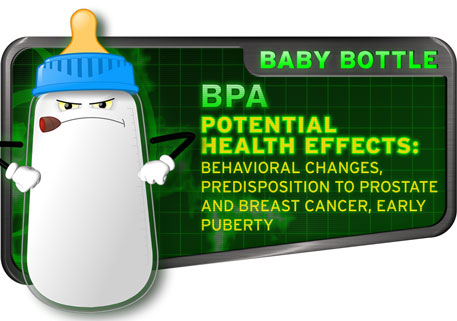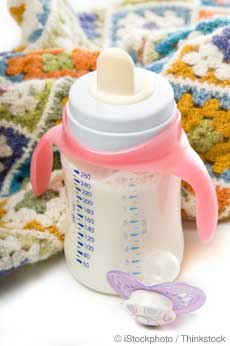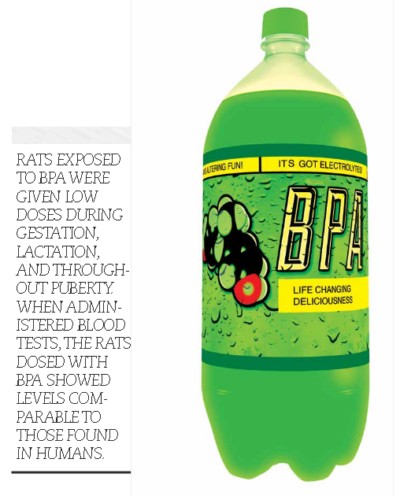welcome
|
||
BPA Death by Plastic
Bisphenol A (BPA) is a widely used chemical substance. This chemical exists in nearly every plastic container, is used as lining for metal cans, and can even be found on receipts, toilet paper and worldwide currency. BPA leaches from its container into whatever it happens to contain. If you microwave a TV dinner for example, the chemical content of the plastic container would find its way into the food you are going to eat. Likewise, when bottled water or a soft drink is manufactured and shelved, BPA leaches into the liquid over the time it takes to be purchased and consumed. Because of its widespread application in all forms of packaging, manufacturing and otherwise, chances are that you are somehow interacting with this substance on a daily basis. Many other countries have already declared BPA a toxin and prohibited its usage in a number of products. It's in nearly everyone's bloodstream. And now, Canada has declared BPA a toxic substance, both to the environment and to public health.
BPA Death by Plastic - Special Report
Aaron Dykes hosts a segment on Bisphenol A, the dangerous estrogenic in plastic drinking bottles
and food containers. BPA is a known toxic substance outlawed in Canada and Europe, but still used in the United
States, even though the FDA raised concerns regarding exposure of fetuses, infants and young children to the
substance.
Uncovering Bisphenol A - Covert Depopulation
Bisphenol A
(BPA) is a chemical building block that is used primarily to make polycarbonate plastic and epoxy resins. Use in
some food and drink packaging, e.g., water and infant bottles, compact discs, impact-resistant safety equipment,
and medical devices. Epoxy resins are used as lacquers to coat metal products such as food cans, beer cans, bottle
tops, and water supply pipes.
BPA Sex Hormone in a Can
Are You Exposing Yourself to Toxic BPA? Andre Evans Bisphenol A (BPA) is a widely used chemical substance. This chemical exists in nearly every plastic container, is used as lining for metal cans, and can even be found on receipts, toilet paper and worldwide currency. BPA leaches from its container into whatever it happens to contain. If you microwave a TV dinner for example, the chemical content of the plastic container would find its way into the food you are going to eat. Likewise, when bottled water or a soft drink is manufactured and shelved, BPA leaches into the liquid over the time it takes to be purchased and consumed. Because of its widespread application in all forms of packaging, manufacturing and otherwise, chances are that you are somehow interacting with this substance on a daily basis. Many other countries have already declared BPA a toxin and prohibited its usage in a number of products. BPA’s Role in DiseaseBPA is an endocrine disruptor. It mimics the natural hormones produced by your body, specifically estrogen. When your body interacts with BPA, it delivers an estrogen-mimicking effect. This is known to lead to a host of health problems including infertility, cancer, weight gain and more. This hormonal interference may also be responsible for accelerating puberty and altering the growth of children, causing hormonal confusion. Many studies suggest a widespread range of additional effects, including altered immune function, neurological and behavior problems, heart disease, and diabetes. Even low levels of exposure can cause adverse effects on health. Its been stated that 95% of paper money has been found to contain BPA, which means that an equally large fraction of individuals worldwide have at some point been exposed to this chemical at least from touching it on a regular basis. What is more dangerous is that due to its use in food preservation, many people are unwittingly consuming this harmful chemical, which is much worse than topical exposure. The widespread effects of BPA are being increasingly recognized throughout the world. Despite this, once its presence in society is removed, one can expect the number of health issues associated to vanish alongside it.
Canada Declares BPA Toxic. Why Isn’t the US Following Suit? November 02, 2010
|
|
|
BPA causes changes to your brain, not just your bodyWednesday, September 19, 2012 by: PF Louis |
(NaturalNews)
Bisphenol A (BPA) has been a
chemical item of great health concerns for the past few years. It's common in many plastics, including plastic food
and beverage containers, inner epoxy linings of cans used for canned foods, thermal paper, and paper
money.
BPA leaches into the liquids and foods in those containers. It also leaches into your
blood through the skin while handling paper money and thermal paper, commonly used for printing
receipts.
Although the FDA refuses to consider BPA unsafe, other nations have. Several have
banned BPA. The researched health hazards include links to cancer, especially breast cancer, and hormone imbalances
causing physical/sexual manifestations that affect both genders of all ages.
Even a CDC, Centers for Disease Control
and Prevention, 2003-04 study found that 93 percent of over 2,500
Americans surveyed had measurable BPA in their blood. Unfortunately, BPA remains in the bloodstream for a long time
unless the right nutritional antidotes are taken, which are discussed later in this article.
That means expectant mothers can pass BPA on to their newborns while in the womb and
afterward while breastfeeding. Also, beware of plastic baby bottles that aren't BPA free.
BPA also affects the brain and nervous system
A recent animal study using mice at North Carolina State University proved that the
brain and nervous system are also affected adversely by BPA. Here's their research paper published in the
journal PLOS ONE.
(http://www.plosone.org)
Summarizing: The rats were divided into different groups, some fed BPA levels
comparable to human levels, some not fed BPA, and others fed BPA with soy. They discovered that early exposure
to BPA causes gene expression changes that affect the
molecules of a part of the brain known as the amygdala.
This region of the brain is responsible for dealing with response to fear and stress.
It also affects social behavior. Another human pediatric study determined neurological effects from BPA at three
years of age, especially among girls. Anxiety and/or depression were the common symptoms.
Ironically, soy's estrogen mimicking element, genistein, seemed to counteract or block BPA's estrogen
mimicking ability in the study. That's like fighting fire with fire. The scientists doing this research seem to
desire exploring soy's BPA neutralizing properties.
They probably don't know why many informed foodies reject soy: Most are GMOs; non-GMO
soy is difficult to digest unless fermented, and just how would they know when the BPA level has been neutralized
by soy, allowing soy's genistein to take over the estrogen mimicking function, causing problems all over
again?
Preventing and getting rid of BPA
Phase into glass and ceramic containers as much as possible. If you must use
plastic, try to keep the container cool and out of sunlight. Plastic containers have recycle numbers placed with
triangles, usually at the bottom of the container. Those numbered one or five are the least harmful.
If a canned food item doesn't have "BPS-free" on the label, leave it on the shelf.
After handling thermal paper or paper money, wash your hands thoroughly. If your work demands considerable handling
with either type of paper, try wearing thin latex gloves.
Now here are those antidotes to BPA's estrogen mimicry:
Increase probiotic consumption. Probiotic supplements should include bifidobacterium
breve, lactobacillus casei, bacillus pumilus, and bifidobacterium 3.
Instead of expensive supplements, you can use homemade water or milk kefir, and
fermented foods such as kimchi, sauerkraut, miso, and tempeh. (http://www.naturalnews.com)
Black tea and Royal Jelly also work well. Supplementing with melatonin (for sleep
only), folic acid, or quercetin are other good choices. Genistein extracts are contraindicative to pharmaceuticals
for allopathic breast cancer patients.
Caveat: Bisphenol-S (BPS) may have
replaced BPA in many products. Though apparently not as strong, its properties are similar to BPA.
Sources for this article include:
http://www.prisonplanet.com
http://naturalsociety.com
http://naturalsociety.com/toxic-bpa-substitute-bps-chemical/
http://news.ncsu.edu/releases/wms-patisaul-amygdala/
http://pediatrics.aappublications.org
Learn more:
http://www.naturalnews.com/037241_bpa_nervous_system_plastics_chemical.html#ixzz2gNq6jQl1
Study finds bisphenol A on money

A new report says Bisphenol A (BPA), the controversial hormone disrupting chemical widely used in plastics, is turning up in an unlikely place–the money in your wallet.
Researchers suggest that BPA is rubbing off cashier receipts and onto bills, according to a report titled "On The Money: BPA on Dollar Bills and Receipts," published by the Safer Chemicals, Healthy Families, and the Washington Toxics Coalition (WTC).
Ericka Schreder, a staff Scientist with WTC and author of the report, says lab tests confirm the chemical rubs off receipts onto the skin after holding it for just 10 seconds. WTC researchers first tested 22 thermal paper receipts collected from businesses in 10 states and the District of Columbia. Half contained higher than trace amounts of BPA. They also tested 22 $1 bills and found BPA on 21 of them. Schreder says contamination most likely occurs once receipts come in contact with money in places like wallets and cash register drawers.
"Levels on dollar bills were lower than on receipts, but the fact that our currency is contaminated with a hormone-disrupting chemical illustrates how our current chemical law is failing us," Schreder says. "Even the most careful consumer can't avoid BPA when it's so pervasive that it even contaminates money."
But Kathryn St. John, a BPA specialist at the American Chemistry Council says while some receipts made from thermal paper can have low levels of BPA, research shows it's safe.
"To the limited extent BPA is absorbed through the skin, it is converted to a biologically inactive metabolite that is rapidly eliminated from the body," St. John said. "Biomonitoring data from the U.S. Centers for Disease Control shows that consumer exposure to BPA, which would include any exposure from receipts, is extremely low. Typical exposure from all sources is about 1,000 times below safe intake levels set by government bodies in Europe and the U.S. In comparison, the trace levels of BPA claimed to be present in dollar bills are insignificant."
In July, The Environmental Working Group released a similar study about BPA and cash register receipts. EWG researchers tested 36 and found 40 percent had high levels of the chemical.
Environmental groups and public health advocates have linked BPA to a number of serious health problems including cancer, diabetes, infertility, early puberty and heart disease. According to the National Institute of Environmental Health Sciences at the National Institutes of Health (NIH), 93 percent of urine samples from people over the age of 6 have detectable levels of BPA, but research linking some health problems—particularly in adults–to the chemical has been inconclusive. Still, earlier this year the FDA said recent studies "provide reason for some concern about the potential effects of BPA on the brain, behavior, and prostate gland of fetuses, infants and children."
Schreder says with the growing body of evidence, it's clear reform of the Toxic Substances Control Act (TSCA)–which gives the Environmental Protection Agency (EPA) the authority to regulate chemicals–should be a priority.
"We need to update the 1976 Toxic Substances Control Act with a new chemical law that both requires companies to provide health information on chemicals they produce and ensures that chemicals that can cause cancer, infertility, and other health problems can't be used in everyday products."

REACH OUT TO OTHERS
[Help Educate Family And Friends With This Page And The Links Below]
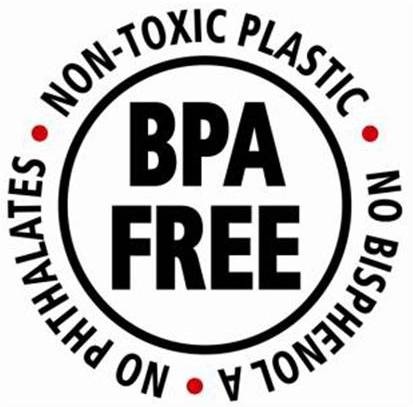
MORE:
Genocide by The House of Windsor
Bisphenol A (BPA) Death by Plastic
